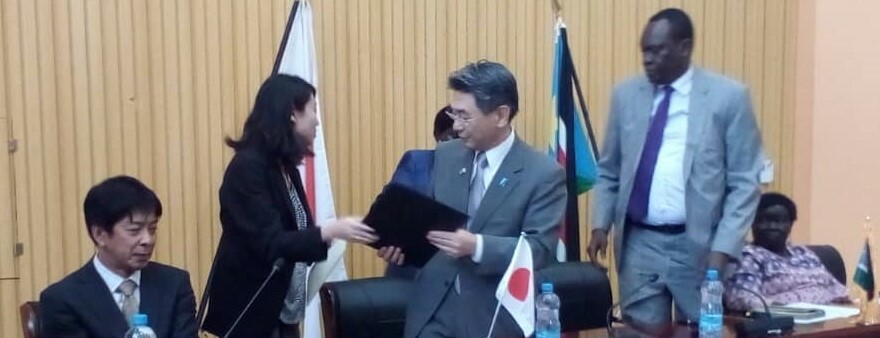The governments of South Sudan and Japan on Friday signed a grant agreement of 2,930,000 Japanese Yuan for the cleaning and expansion of the Juba River Port.
The project, which is expected to take two years, will see an expansion of the jetty, cargo handling yard, storage facilities, security facilities (security fence, gate, guard post, flood lights) and lifelines (generator, well, water tank, hydrant and toilet) among others.
Speaking during the signing ceremony in Juba, Ambassador Mayen Dut, the Undersecretary of South Sudan’s Ministry of Foreign Affairs who signed on behalf of the government, said the grant agreement is in line with the Japanese economic cooperation with the government of South Sudan.
“The project for the development of Juba River Port is very important for the economic development of South Sudan as it will open the transport network access in the country,” Mayen said.
The ministry’s undersecretary further said the grant availed by Japan will be used efficiently and transparently for the benefit of the economy in South Sudan.
“Because of its importance, the government of South Sudan will make sure the grant availed will be properly and exclusively used,” he stressed.
For his part, Tsutsumi Naohiro, the Japanese Ambassador to South Sudan, said the Juba River Port project is to contribute to taking advantage of developing South Sudan’s economy, especially at a point where there is an economic crisis.
“The expanded port will be helpful for not only reducing the barrier of exchanges between the east and the west but also enhance the connectivity among the riverside areas. I must say this is a great step towards a self-reliant economic development in South Sudan,” Tsutumi said.
“After 11 years, the original plan cannot be used as it was. Therefore, the government of Japan decided to end the initial project and start a new project based on the planning based on the current situation,” he added.
The project, which to be undertaken by Japanese contractors, is expected to take off this year.




